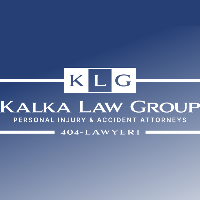Being involved in a car accident in Atlanta can be a stressful experience, both physically and emotionally. In the aftermath of a collision, navigating the insurance claims process is often a daunting task. It is important to understand what type of insurance your state uses when determining how claims are processed. Georgia for example is a “fault” state when it comes to insurance claims. This means that the at-fault person’s insurance will be responsible for payment of all compensation related to the accident. Many states however are no-fault states. The process in these states tends to differ significantly. So what is no-fault insurance, and how does it impact drivers involved in accidents?
What is a No-Fault Accident Insurance Claim?
A no-fault insurance system is a type of automobile insurance in which drivers involved in accidents are compensated by their own insurance providers, regardless of who was at fault for the collision. Under this insurance system, each driver’s insurance policy will include Personal Injury Protection (PIP) coverage. This coverage is meant to provide compensation for medical expenses, lost wages, and other accident-related costs, regardless of who was at fault in the car accident.
What Are The Key Aspects of No-Fault Accident Insurance Claims?:
There are a number of items that make no-fault auto insurance different from at fault auto insurance. Some of these include:
1. Immediate Medical Coverage – One of the main advantages of a no-fault insurance system is that people who have sustained injured can receive immediate medical coverage without having to wait for who is at fault in the accident to be determined. PIP coverage will usually cover the medical expenses incurred as a result of the accident, including hospital bills, doctor’s visits, and rehabilitation costs.
2. Lost Wage Reimbursement – On top of covering medical expenses, PIP coverage may also include compensation for lost wages resulting from the car accident. If you are unable to work due to your injuries, this coverage can help pay for essential living expenses while you recover.
3. No-Fault Thresholds – It is important to note that some states with no-fault insurance systems will impose thresholds or limitations on the types of injuries or expenses that qualify for no-fault benefits. For example, if you are injured in a car accident, you may need to prove that your injuries are severe enough or that your medical expenses exceed a specified amount before they can seek compensation beyond their PIP coverage.
4. Limitations on Lawsuits – It can be difficult in a no-fault insurance system to sue the at-fault driver for additional compensation after an accident. The PIP benefits provided by a no-fault insurance system means that the injured party will typically have to forfeit their right to sue the at-fault driver, except in cases of severe injury or other specific circumstances. This limitation on lawsuits is meant to streamline the claims process and reduce litigation, but can leave injured parties without the compensation they need.
How The No-Fault Insurance Claims Process Works
If you’ve been involved in a car accident in a no-fault insurance state like Florida or Pennsylvania, it’s essential to understand your rights and obligations under the applicable laws and insurance policy. Here are some steps to navigate the no-fault insurance claims process effectively:
- Report the accident to the local authorities and your insurance provider as soon as possible
- Seek medical attention even if you feel okay after the accident and document all medical expenses, treatments, etc.
- File a PIP claim with your insurance provider including all necessary documents such as medical expenses so that you can receive compensation.
- Cooperate with your insurance provider’s investigation of the accident including giving a statement or participating in an interview – it is best to speak with an experienced personal injury attorney before giving a statement however.
- Consult with an experienced car accident attorney near you about the best way to proceed with your claim and whether you have a right to further compensation
Do You Have To Report An Accident To Your Insurance If It’s Not Your Fault?
It’s quite common for only one party to be responsible in a car accident, for example you get rear ended while stopped at a traffic light, or a car runs a stop sign and runs into you. When you are sure you are not responsible for the accident, you might be wondering, ‘do I have to report an accident to my insurance if it’s not my fault?’ The answer is yes, you do. Regardless of whether you caused the accident or were the victim, your insurance needs to be aware so that a claim can be processed on your behalf. This is especially true in no-fault insurance states, where your insurance will be the one covering your costs through your PIP coverage.
It’s Important To Know Your Insurance Type
In the state of Georgia where our law firm the Kalka Law Group operates we use an at fault insurance system to process claims after a car accident, it has its advantages and disadvantages. States that use no-fault accident insurance systems offer a streamlined and efficient way for injured parties to seek compensation for their injuries and losses following a car accident, but they may lose out on maximum compensation due to restrictions when it comes to suing the other parties involved. Understanding your states’ insurance system can help you to have a more realistic idea of what sort of compensation you could expect should you ever be involved in a car accident.




